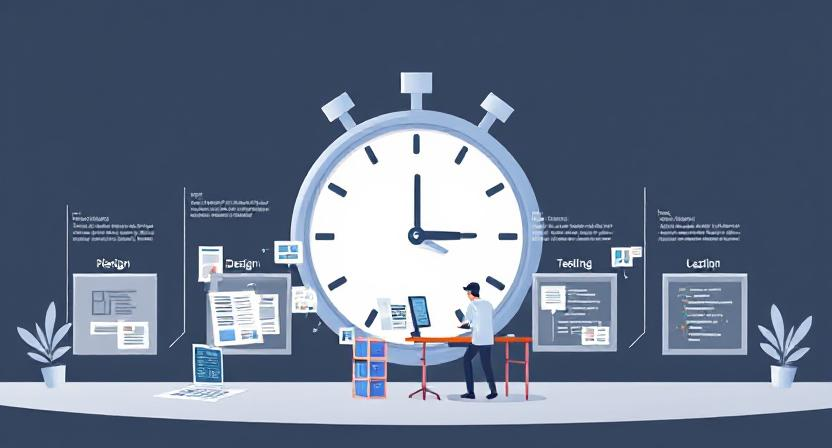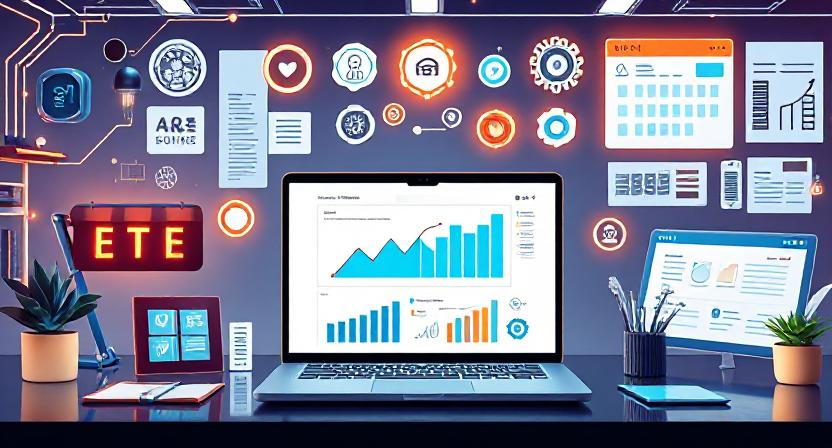Developing a website is a process that involves multiple stages, each requiring a different amount of time depending on the complexity of the project. Whether you need a simple personal blog, an e-commerce store, or a custom business website, understanding the development timeline helps in planning and execution. This article explores the factors influencing website development time and the estimated durations for various types of websites.
Factors That Influence Website Development Time
Several key factors affect how long it takes to develop a website. These include:
1. Type and Complexity of the Website
- A simple informational website (like a personal blog or small business site) takes less time compared to a complex e-commerce platform or a web application.
- E-commerce websites require additional features such as product catalogs, shopping carts, payment gateways, and user authentication.
- Custom web applications often take the longest due to unique functionalities, security requirements, and performance considerations.
2. Design Requirements
- Template-based designs are quicker to implement, taking around 1-2 weeks.
- Custom designs require more time, often taking 4-8 weeks, as designers need to create unique user interfaces and user experiences.
3. Content Preparation
- Websites need quality content, including text, images, videos, and downloadable resources.
- If content is ready beforehand, development moves faster. Otherwise, content creation can add weeks to the timeline.
4. Development Process and Technology Stack
- Websites built on platforms like WordPress or Shopify can be developed quickly.
- Custom-built websites using HTML, CSS, JavaScript, and backend frameworks take longer, as coding from scratch requires more effort and testing.
5. Third-Party Integrations
- If the website requires third-party integrations like payment gateways, APIs, CRM systems, or marketing tools, additional time is needed for setup and testing.
6. Testing and Quality Assurance (QA)
- Every website undergoes testing to ensure it functions properly across different browsers and devices.
- Bugs and security vulnerabilities must be identified and fixed before launch, adding a few days to weeks to the timeline.
Estimated Timeline for Website Development
Below is a general timeframe for different types of websites:
1. Simple Personal or Business Website (5-10 pages)
- Design & Planning: 1-2 weeks
- Development: 2-4 weeks
- Testing & Launch: 1 week
- Total: 4-7 weeks
2. E-Commerce Website
- Design & Planning: 2-4 weeks
- Development: 4-8 weeks
- Payment Gateway & Features Integration: 2-4 weeks
- Testing & Launch: 2 weeks
- Total: 8-14 weeks
3. Custom Web Application
- Planning & Wireframing: 4-6 weeks
- UI/UX Design: 4-6 weeks
- Backend & Frontend Development: 12-24 weeks
- Testing & QA: 4-8 weeks
- Total: 6-12 months
How to Speed Up Website Development?
If you need to launch your website quickly, consider the following:
- Use a website builder like Wix, Squarespace, or WordPress with pre-built templates.
- Hire an experienced web development team to avoid delays caused by technical issues.
- Prepare content in advance to streamline the development process.
- Utilize pre-built themes and plugins instead of building everything from scratch.
- Define clear project goals to minimize unnecessary revisions and changes.
Conclusion
The time required to develop a website depends on its complexity, design, content, and development approach. A simple website may take a few weeks, while a complex web application may take months. Proper planning and choosing the right tools can help speed up the process while ensuring a high-quality result. Whether you need a fast turnaround or a custom-built solution, understanding the development timeline helps in making informed decisions.










